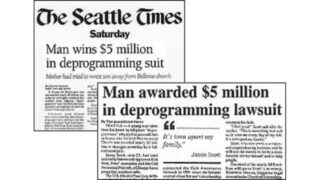“Any alteration, edition, suppression, addition or adaptation to the texts of the Holy Bible” is prohibited by a draft law targeting religious minorities.
by Massimo Introvigne


“More than 89% of Brazilians consider the Bible as sacred. Consequently, any change in the wording of this Book configures an inadmissible act.” This is why the Legislative Assembly of the State of Pernambuco is being asked to pass a law that would criminalize “tampering” with the Bible.
“Any alteration, edition, suppression, addition, or adaptation to the texts of the Holy Bible is hereby forbidden, aiming at the maintenance of the inviolability of chapters and verses and ensuring the preaching of all its contents in the state territory,” according to the draft submitted by state legislator Cleiton Collins, who happens to be an Evangelical pastor.
It would be a mistake to dismiss Collins as irrelevant. A member of the pro-Bolsonaro Progressive Party, he is a former President of Pernambuco State Assembly. He was elected six times in a row and was the second most voted candidate in the 2018 State elections, with more than 100,000 votes.
In the comments submitted together with the draft law, Collins argues that “for Christians, the Bible is much more than a book with beautiful stories, since the Holy Scriptures are precepts of faith and practice that must be followed by all those who believe in the certainties of the Bible.”
The pastor is aware that Catholics and Protestants have different Bibles. “The Evangelical Bible, he says, is composed of the Old and New Testaments, contains 66 Books, 1,189 chapters and 31,102 verses. The Catholic Bible, on the other hand, has 73 Books, distributed in 1,330 chapters and 35,527 verses.” However, he sees “a unity of ideas and principles among the different denominations that makes the Holy Bible an inviolable book. In this sense, all Christians believe in the existence of only one God, sovereign, creator of the universe, of heaven and earth, and in the power of his only begotten son Jesus Christ, redeemer of humanity, through whom, all other children have access to salvation if they believe in these principles.”


Collins believes that Catholics and Protestants can agree in making the Bible “an inviolable object.” In other words, he is trying to rally them against the Jehovah’s Witnesses, the Latter-day Saints (Mormons), the Unification Church/Family Federation and others whom Evangelical (and sometimes Catholic) counter-cultists accuse of “altering” the translations of the Bible or adding new sacred scriptures to their canons.
The draft law is obviously unconstitutional, as it would ask secular judges to determine what books in the Bible are part of the canon and what translation is correct or otherwise. However, the very fact that a leading state legislator has proposed it confirms that religious intolerance is a serious problem in Brazil.









